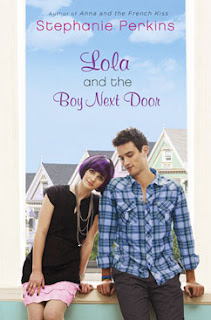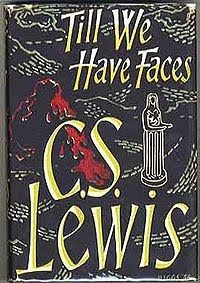Looking back, I can’t believe he let me do it. There we were, hundreds of feet in the air, and me, a little 5 year old, at the controls of his new airplane. I must have looked goofy, the big radio-headphones hanging over my ears and too big for my tiny face. I don’t remember how long the flight lasted or when it was decided that I should pilot the airplane. But I remember the steering wheel, just like my own Playskool car wheel, and gripping it without a sense of the powerful machine I was flying. And there, in the front seat, was my Grandpa laughing at his granddaughter the pilot, roaring as we climbed higher and higher.
Radio control finally brought us down. Grandpa loved to tell the story: “Uh, sir, do you know how fast you’re climbing right now?” He chucked over that line. And from that day on, he always joked about the day I flew a plane, all by myself.
The sky was gray and the wind was chilly, but we dragged out the old lawn chairs and table and sat around it. Mom, with her usual pep and camp-counselor creativity, had gone to Wal-Mart and bought a set of paints and paintbrushes and paper. “Judi, I don’t like to paint. I don’t want to,” Grandpa grumbled, and Grandma tutted, but in the end all five of us were sitting in the garage with cups of water and paints. I focused on the field of yellow flowers next door. Mom painted a sunset. Grandma painted from a picture taken in Belize of azure water and a single post with a sea-gull crowning it. And Grandpa? He painted a smiley face.
“Anna, look,” he said, grinning in anticipation of her amusement. She cackled with laughter.
“You can’t just paint that! Come on, Grandpa!”
“What?” He pretended to be shocked. “More? Oh, all right.”
There was silence a little bit longer as we painted. Then he said, “Absy, look.”
He turned his paper around to reveal the same large face with a tear running down its cheek and black lines running vertically across him. “He’s sad, because he’s in jail.”
I laughed at him, then pointed out the blank spaces on the paper. “What are you going to put there?”
He sighed in mock frustration, and again we painted, uninterrupted for a few minutes. The next interruption was the final one: “Look, everyone.” He had painted V’s for birds, added a third-grader sun, and was done. Grandpa was no artist, but he certainly was a comedian!
The Oregon coast was cloudy and cold, but the ocean made it beautiful. It was early in the morning, the sand was pasty from a previous rain, and we were all walking on the beach.
“Can we swim?” I asked eagerly, but Aunt Barb shook her head.
“Oh, no, honey, it’s way too cold to swim,” she said. So I had to be content with strolling along and looking at all the objects washed ashore from the turbulent tides. Grandpa appeared from the key-shaped hole in the cliff that led to Aunt Barb’s house, camera in hand. Grandma followed right behind him.
I wandered towards the shore where the waves rushed in, wishing it wasn’t so cold in July. Lost in thought and jet-lag, I wasn’t paying attention when a particularly big wave hurtled towards me. When the cold seawater rushed over my feet, I shrieked and jumped back in surprise. Upset, I heard a loud guffaw from behind me, and turned to find Grandpa, camera in hand, cracking up at the pose he had just caught me in. He beckoned me over to show the picture. “I call it, ‘Girl Surprised by Wave!’” he laughed. “You knew it was coming, and you didn’t tell me!” I accused him, laughing, and he laughed all the harder.
I settled into the unfamiliar drivers’ seat of Grandpa’s Cadillac, feeling extremely nervous. I had never driven before. Cars were dangerous. I had no idea how to drive! Grandpa slid into the passenger seat next to me, and looked at me solemnly. “Now, we’re going to go very slow here,” he said. “Speed kills. Speed is what causes accidents. Speed is dangerous. So we will not go fast. Okay?”
“Yes, sir,” I said, thinking, 10 miles per hour, that sounds right. Perfect speed. I moved to turn the key in the ignition.
“Go slow,” he repeated one last time, and then I started the car.
I inched the car out of the driveway, barely hitting above 5 miles an hour. As I turned and rolled out on to the road, I was driving 10 mph. “Well, faster than that!” Grandpa said, so I increased it to 15.
“Come on, Abs, faster!” he urged me, and I hit 20, gripping the steering wheel and feeling unnerved by my dangerous speed. We came to the crest of a hill and the car rolled downward, the needle approaching 35 before I could brake desperately. In my innocent, not-driver mind, this was like going 100 mph. When I had gotten the speed down to a manageable 15 again, Grandpa again urged me, "Faster, Abby, faster!"
"What happened to 'slow,' Grandpa?!" I finally exclaimed.
A few minutes later, we were driving along slowly when he asked me to turn left. Carefully, I turned right. "Your other left," he told me, chuckling, and I frowned.
"I don't really know my left from my right."
With a mischievous look, he held up his hands, left and right, in front of him, pointer fingers up and thumbs out to form an L. "Now, look," he said, pointing to his right hand. "The hand that makes an L has the thumb pointing that way" he traced it and pointed to the right, "so that way is left. See?" He took one look at my bewildered face and burst into laughter. "Gotcha!"
He was a good teacher, and he pushed me out of my comfort zone. He jumped at the chance to teach me, taking me driving almost every time I came to visit. He constantly was worried for my safety.
The phone would ring, and it would be Grandpa. I would sit down or settle in on my bed in anticipation of a lengthy conversation. He would tell me of his childhood, growing up in the Depression and the war, and of walking to school every day in bare feet. He would talk about schoolwork, and how important it was. He would ask about piano, about my grades, about my teachers and classes and writing and books. What I did was important to him- he encouraged me to do my best and celebrated all my achievements. Anything he thought would help me, he would give. And his encouragement and love throughout the years spurred me to do my best. It made me feel valued and loved. It was so important in my growth as a person. I miss him more than I can express, the Grandpa who loved me so much and so kindly, and the Grandpa I loved.










